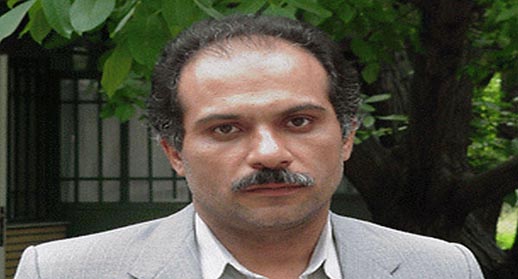 The assassin of the first Iranian nuclear scientist to be assassinated in terrorist acts was an Iranian operative recruited and trained by Mossad, the Israeli spy agency, reported Christian Science Monitor's Scott Peterson.
The assassin of the first Iranian nuclear scientist to be assassinated in terrorist acts was an Iranian operative recruited and trained by Mossad, the Israeli spy agency, reported Christian Science Monitor's Scott Peterson.
"News reports from Israel indicate that a televised confession by Majid Jamali Fashi, broadcast on Iran state TV in early 2011, was genuine," he noted. "Speaking from Tehran's Evin prison, the young man described his training – which included working with two new Iranian motorbikes, and a perfect replica of Alimohammadi’s street and house – at a station for Mossad, Israel's spy agency, off the Tel Aviv-Jerusalem highway east of Ben Gurion Airport."
He added that Mansoureh Karami, wife of the assassinated nuclear scientist confronted Fashi face-to-face at Evin prison while he was pleaded guilty in court and was sentenced to death.
“There were many things passing through my mind, of taking revenge,” Karami said.
She brought the leather satchel her husband used the morning of his death. Eyes brimming with tears, she unpacked it to show how the metal pellets carved through a bound PhD thesis of one of Alimohammadi’s students and tore through his eyeglasses case, breaking the lenses.
Before the meeting, Karami had vowed that, as many pellets as had entered her husband’s head, she would “hammer that many nails in that person’s head.” But when she met Fashi she found a broken man pleading for forgiveness, sobbing so much that he used up an entire box of tissues.
“When I saw him, I saw him being so powerless and small. I said it’s a waste for my hands to expend all this energy [hammering nails],” recalls Karami. She has two grown children, a degree in psychology, and is now pursuing a master’s degree in women’s studies.
“I will never forgive him – there is no place for forgiveness. Because I don’t think he only affected my family, but the whole country,” says Karami, focusing her determined dark brown eyes. “All the people of the world – no matter their beliefs – they still respect their country, and he betrayed his country.”
Alimohammadi knew he was being monitored by some Western nations and the Mojahidin-e Khalq (MKO/MEK).
In 2006, for example, a colleague at a conference in Britain was questioned for 24 hours about Alimohammadi’s nuclear activities. In 2008 another colleague was interrogated for 48 hours, perhaps in Italy.
And in 2009, during a hajj pilgrimage to Mecca, Alimohammadi “realized people were filming him and he was being followed,” says Karami. “After that he paid more attention, and went out much less.” A month before his death, he expressed fear he might be kidnapped during a trip to Jordan and felt physically ill before departin.
Assassin Fashi was one of 10 agents working for Mossad whose arrests were announced by Iran’s intelligence ministry in January 2011. They were heralded as a “remarkable triumph” that showed “intelligence supremacy over the Zionist regime’s espionage system.”
In his televised confession, Fashi said that after his recruitment at an Israeli consulate outside Iran and travel to Israel, he was shown a scale model of Alimohammadi’s home, exact in every detail from the tree and asphalt to the street curb. Reporting from Israel, Time magazine in early 2012 quoted “intelligence sources” confirming Fashi’s “involvement in a Mossad cell that the sources claim was revealed to Iran by a third country.”
Fashi said in his confession, “They told me that the subject of the operation is a person involved in making an atomic bomb and that humankind is in danger and you are the savior.”
“I know a lot of people in my neighborhood who are not pro-revolutionary. But now [after the assassinations], on the nuclear issue they speak completely for the government,” says Karami. “I am certain of our officials, that they will not forget our martyrs.”
